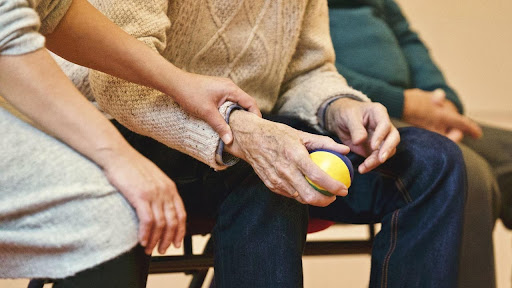
Hip fractures are serious injuries that can have complicated and life-threatening consequences. Geriatric hip fractures are especially dangerous because bones tend to weaken as they grow older. This, combined with balance problems, medication’s side effects, and poor vision, make seniors more susceptible to falls and hip fractures. According to the Centers for Disease Control and Prevention (CDC), over 300,000 people aged 65 and older are hospitalized for hip fractures every year.
As individuals age, their chances of breaking their hip grow exponentially, and it’s essential to prevent this from happening.
In addition to serious injuries, geriatric hip fractures require hip surgery, loss of independence, and other health problems. As individuals age, their chances of breaking their hip grow exponentially, and it’s essential to prevent this from happening. The complications of geriatric hip fractures can often be fatal, making prevention of the utmost importance. The following are some of our top tips on preventing hip fractures in the elderly.
Exercise and Physical Activity
As we age, we may have balance and mobility issues. Regular exercise and physical activity are critical to helping you maintain peak bone density and muscle strength. In addition to balance training, seniors can take advantage of physical activities, such as yoga, swimming, and tai chi.
Embrace Aids and Assistive Devices
Aids and assistive devices are there to help. If you have balance or mobility issues, a walker or cane can help orient you and make you feel safer. Making you steadier and preventing falls is one more way to prevent geriatric hip fractures.
Preserve Bone Density
When it comes to preventing hip fractures in the elderly, it’s essential to preserve bone density. Drinking excessively and smoking both contribute to reduced bone density. Alcohol can also impair balance and result in more falls.
In addition to this, it’s crucial that seniors get adequate calcium and Vitamin D levels to keep their bones strong. As a rule of thumb, seniors should get at least 600 IU of Vitamin D (this rises to 800 IU in those above 70) and at least 1200 mg of calcium per day.
Regular Testing
Seniors need to look after their health and get tested regularly. If they have osteoporosis or low bone density, they’re at higher risk of geriatric hip fractures. Regular bone density tests can help prevent this. Furthermore, seniors should also regularly get their eyes checked. Poor eyesight is often responsible for falls and may result from diseases such as diabetes.
Remove Fall Hazards and Fall-Proof Your Home
Rugs, electrical cords, and furniture in high-traffic areas all pose a fall risk. Since 95% of hip fractures result from falls, it’s critical to avoid this. Remove rugs, tack them down, or replace them with non-slip mats to prevent this. You can further fall-proof your home by installing more lighting, rails, grab bars, and a stairlift.
If you don’t want to go through a home assessment and modify your home, there’s another option for preventing hip fractures in the elderly. Moving to an assisted living facility ensures that your needs are met while remaining relatively independent. Since these facilities are built to house seniors, all your needs are catered to. Call American Grand Living Suites at (920) 585-6985 or contact us here to book a tour of our state-of-the-art facilities.







